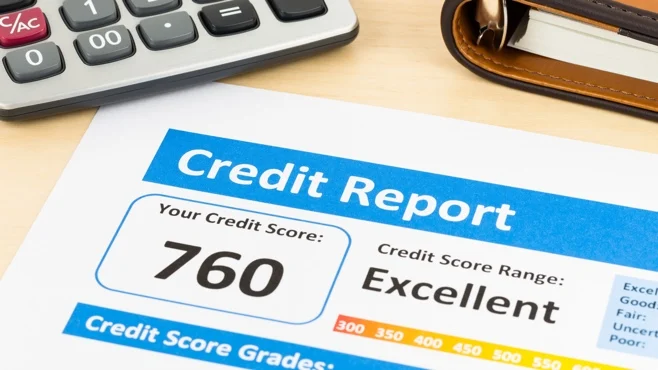That may sound complex, but surely it’s possible on your own, provided you go about it in the right manner. This comprehensive guide will point out an elaborated step-by-step process to which you securely can follow to help you with all credit issues and improve your credit score as needed.
Our team has gone through an awful lot of painstakingly gathering this advice from the wealth of real-life experiences and current best practices so that you can go about credit repair with fantastic confidence.
1. know Your Credit Report
Why Your Credit Report Matters
Your credit report is similar to your ‘report card’ for your credit history. It lists a history of your different credit accounts and your associated payment history, as well as any negative marks that may have occurred in association with late payments or collections. Knowing how to read your credit report is the first step toward taking control through Do-It-Yourself credit repair.
How to Get Your Credit Report:
By law, you are entitled to one free credit report from each of the three major credit reporting bureausEquifax, Experian, and TransUniononce every year. You pull the reports from AnnualCreditReport.com. Very important: you want to pull all three reports, because they may have different information in them.
Things to Check:
Personal Information: Check that your name, address, and Social Security number are all correct.
Account Information: The balance in all accounts is up to date, the payment history is complete, and the status of all accounts correctly reflects.
Negative Items: Identify late payments, collections, or bankruptcies that can adversely affect your credit score.

2. Identify and Dispute Errors
Common Credit Report Errors:
Following are some general mistakes which one has to look for in his/her credit report:
Everything, from wrong account info to outdated information and not even belonging to you, may become an error. The most general mistakes included wrong balances, duplicate accounts, and one wrong late charge.
Dispute Errors:
Document the Error: You can note it down or highlight in your credit report.
Evidence gathering: You start gathering all those documents which prove your claim; for example, bank statements or a receipt which proves you paid your debt.
Contest the report: You will have to get in contact with the credit reporting bureau showing your error. You may do this online, by telephone, or by mail. You’ll want to attach a copy of your credit report, along with supporting documentation, to your dispute.
Follow-up: Credit bureaus take about 30 days to investigate the dispute and come up with a resolution. They will send through the post the results of their investigation whereby in case the error has been corrected they will update your credit report.
3. Making a Credit Repair Plan
Making a Budget:
Take a hard look first at your current financial situation. The budgeting will assist in ascertaining where your money has gone and how much is available to use toward debt settlement. The following must be included in your budget:
Income: Count all your sources of income.
Expenses: Line up all the monthly expenses related to bills and discretionary spending.
Debt Repayment: Allocate money to the purpose of shrinking your debt.
Goal Setting
Set clear-cut feasible goals in your credit score improvement; it may be in the reduction of balances of your credit cards, paying off loans, or constantly making current payments every month.
How to Apply the Plan to Pay Off Debt
Choose one of the following that works best for you:
Snowball Method: Pay the smaller debts first and then go up the ladder. Sometimes, it forms momentum and keeps you motivated.
Avalanche Method: Pay off those debts first that carry higher interest rates. This way you would save more in terms of interest in the long run.
4. Building Positive Credit History
Making On-Time Payments:
Your payment history is the area of your credit score that takes the biggest hit. Pay all of your bills on time. Make reminders or, if you must, schedule automatic payments so that you are never, ever late.

How You Handle Credit Utilization
Credit utilization is the percentage of credit card balances relative to limits. This must not be over 30% if one does not want his credit score to get hurt. Assuming that a person has a total credit limit of, say, $10,000, then he must try not to let his credit-card balances top $3,000.
Not Closing Old Accounts:
Second to payment history, the major determinant of your credit score is how long your history of credit has been. The longer the history of credit then keep the older accounts open, as long as they do not cost you any money in fees and are not encouraging you to overspend.
Avoid New Hard Inquiries:
That is, each time you apply for new credit, a hard inquiry will be pulled on your credit report. When too many of these are pulled in a relatively short period of time, they kill your credit score absolutely. Apply for new credit only when you really need to or you have a good feeling that you will be accepted.
5. Using Credit Responsibly
Credit Card Terms Defined:
Know all the interest rates, fees, and rewards that each one of your credit cards has attached to them. Knowing what all of the terms mean will more than likely help in making better use of your credit cards and also to steer clear of those unwanted charges in the process.

Living Without Unwanted Debt:
Never charge on your card but that which you can afford to pay off in full every month. Do not make credit available for everything except essential goods since you have to pay the debt first and foremost at present.
Building an Emergency Fund:
An emergency fund will avoid the need to fall back on credit if and when some fortuitous situation crops up. Consider building three to six months’ worth of expenses as your financial cushion.
6. Seeking Professional Help if Needed
When to Consider Credit Counseling:
If the credit issues are complex or too much to handle, involvement of a credit counseling agency is always advisable. Most reputed agencies will be in a position to advise and work out a debt management plan. The credit counseling agency should be on a non-profit basis and should be accredited by organizations such as the National Foundation for Credit Counseling.

How to Avoid Credit Repair Scams?
Also, be wary of those companies that claim miraculous repairs or request advanced payments. As with everything in life, no credit repair company is deserving of the reputation of overnight magic for anyone. Only trust sources and professionals that you can trust.
How Our Team Came Up with These Insights
The crew here at Clean Credit combines experiences in credit management and financial consulting. First-hand, we have helped hundreds of people repair their credits. We learned first-hand what works and doesn’t.
For example, the Federal Trade Commission reported that 79% of credit reports alone are recorded with errors-an indication of how cardinal it is to have accurate information and effective methods.
Most of the how-to books do not have complications to deliver information step by step, using real-life examples based on the latest findings. This hands-on training, coupled with state-of-the-art research, provides unparalleled insights into practical guidance on how to approach each one. All this is aimed at enabling you to get your credit issues sorted out-better and more efficiently-and taking back the reins of your financial lives.
Conclusion:
All the rebuilding of credit takes so much time and effort, but the end will surely be worth it. Knowing your credit report, disputing your errors, making a good plan, rebuilding positive credit history, using credit responsibly-get you on the right track to a stronger credit profile.


Leave a Reply